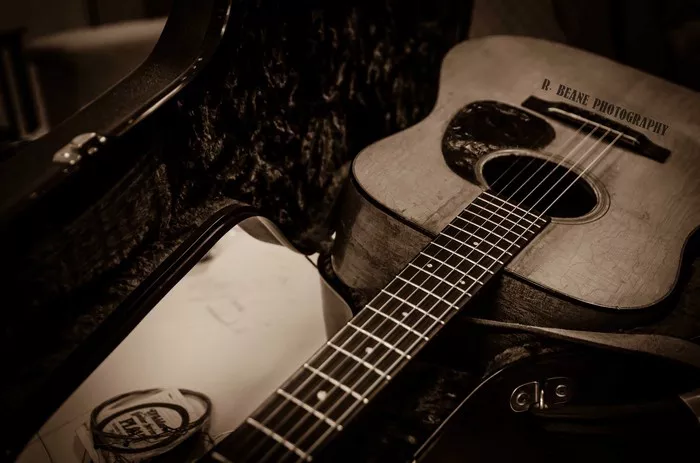Country music has long been celebrated for its storytelling prowess, heartfelt lyrics, and connection to everyday life. However, like any genre, it has also seen its share of controversy and criticism. One such contentious issue is the presence of vulgar country music singers, whose lyrics and performances push the boundaries of what some consider acceptable in the genre. In this article, we delve into the world of vulgar country music singers, examining their impact on the industry, fanbase reactions, and the ongoing debate over artistic expression versus cultural responsibility.
Defining Vulgar Country Music
To begin our exploration, it’s crucial to define what we mean by “vulgar country music.” This term refers to songs, lyrics, or performances that incorporate explicit language, themes, or imagery that may be considered offensive or inappropriate by certain audiences. Vulgarity in country music can manifest in various ways, including profanity, sexually suggestive content, drug references, or controversial political commentary.
Notable Artists in the Genre
Several artists have made a significant impact on the vulgar country music scene, pushing boundaries and garnering both praise and criticism for their provocative approach. Some notable names include:
Hank Williams III: Known for his rebellious spirit and raw lyrics, Hank Williams III (or Hank3) has carved a niche for himself in the vulgar country music genre. His songs tackle themes of addiction, rebellion, and personal struggles, resonating with audiences seeking authenticity and grit in their music.
Wheeler Walker Jr.: With his unabashedly explicit lyrics and humorous take on taboo subjects, Wheeler Walker Jr. has gained a dedicated following within the vulgar country music community. His songs blend satire with bold storytelling, offering a unique perspective on contemporary issues.
Margo Price: While not exclusively categorized as a vulgar country artist, Margo Price’s candid songwriting and willingness to address challenging topics have earned her recognition in the genre. Her introspective lyrics explore themes of love, loss, and social commentary, adding depth to the diverse landscape of vulgar country music.
Fan Reactions and Industry Response
The reception to vulgar country music singers among fans and industry insiders has been mixed. On one hand, supporters argue that these artists bring authenticity and relatability to their music by addressing real-life experiences and emotions without sugarcoating or censorship. They view vulgarity as a form of artistic expression and freedom of speech, defending the right of artists to express themselves without constraints.
Conversely, critics argue that excessive vulgarity can alienate traditional country music fans and contribute to a decline in the genre’s reputation. They raise concerns about the impact of explicit content on younger listeners, the objectification of women in some lyrics, and the overall coarsening of cultural discourse. Some radio stations and music platforms have implemented content guidelines to regulate the airplay of songs with explicit content, reflecting a broader debate within the industry.
Artistic Freedom vs. Cultural Responsibility
At the heart of the debate surrounding vulgar country music singers is the tension between artistic freedom and cultural responsibility. Advocates for artistic freedom argue that musicians should have the right to create and perform without censorship, trusting audiences to make their own choices about what they listen to. They point to the long history of provocative art across all genres and argue that pushing boundaries is essential for artistic innovation and relevance.
On the other side, proponents of cultural responsibility emphasize the influence and impact that music can have on society, particularly on impressionable listeners. They argue that artists have a moral obligation to consider the consequences of their words and imagery, especially in a genre like country music, which often reflects and shapes cultural values and norms. Finding a balance between creative expression and social responsibility remains a ongoing challenge for artists and industry stakeholders.
Navigating the Industry Landscape
For vulgar country music singers, navigating the industry landscape involves strategic considerations and careful management of their public image. Many artists use social media platforms to directly engage with fans, share behind-the-scenes content, and provide context for their music. This direct interaction allows artists to control their narrative and connect with audiences who appreciate their authenticity and honesty.
Additionally, collaboration with established songwriters, producers, and industry professionals can help artists refine their sound and navigate the complexities of releasing music with explicit content. Building a strong support team and maintaining open communication with fans and stakeholders are essential strategies for artists seeking longevity and success in the industry, regardless of their chosen lyrical content.
The Future of Vulgar Country Music
As the music industry continues to evolve, the future of vulgar country music remains a topic of speculation and debate. Some predict that the trend toward edgier and more explicit content will continue, driven by changing audience preferences and a desire for authenticity in storytelling. Others believe that a pendulum swing toward more traditional and family-friendly themes may occur as a reaction to perceived excesses in the current landscape.
Conclusion
Ultimately, the trajectory of vulgar country music will be shaped by a complex interplay of artistic vision, audience demand, industry trends, and cultural norms. Artists who can navigate these dynamics while staying true to their creative vision are likely to find success and resonance with diverse audiences, ensuring that the conversation around vulgarity in country music remains relevant and evolving.

